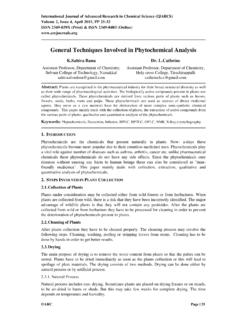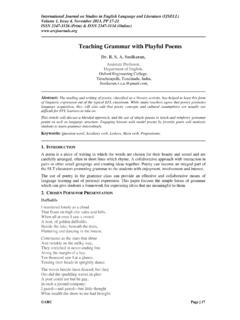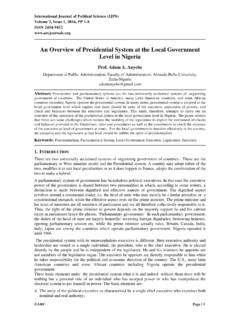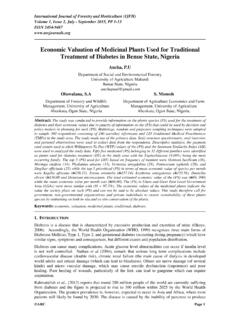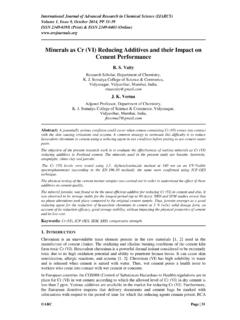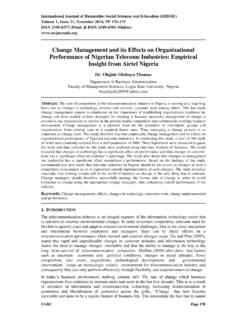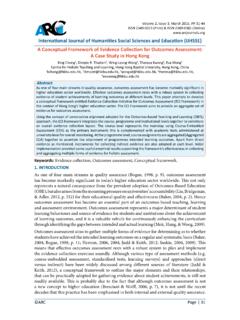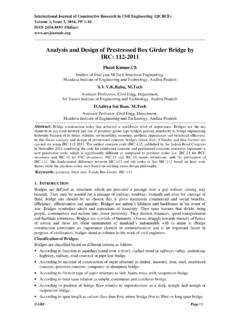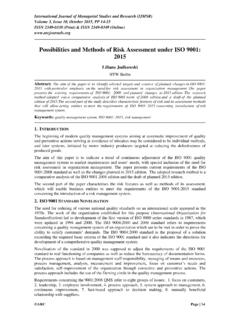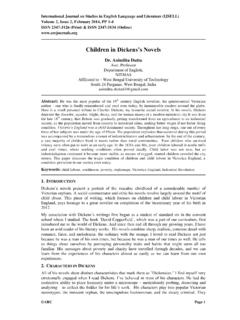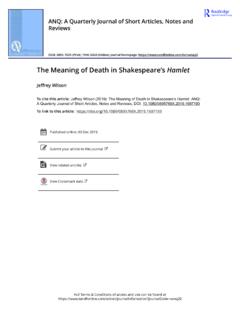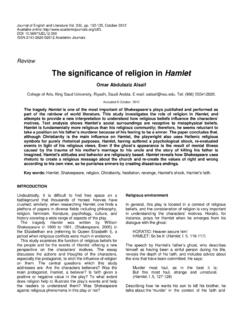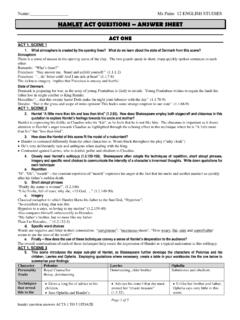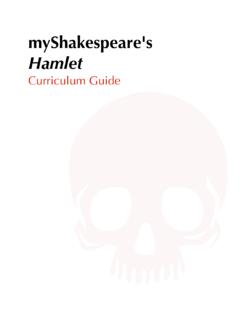Transcription of William Shakespeare: Soliloquies and Asides in Hamlet
1 International Journal on Studies in English Language and Literature (IJSELL) Volume 4, Issue 10, October 2016, PP 82-92 ISSN 2347-3126 (Print) & ISSN 2347-3134 (Online) ARC Page | 82 William Shakespeare: Soliloquies and Asides in Hamlet Farzana Nasrin Assistant Professor Department of English Jessore University of Science and Technology Jessore - 7408, Bangladesh Md. Mehedi Hasan Assistant Professor Department of Language and Communication Patuakhali Science and Technology University Dumki, Patuakhali 8602, Bangladesh Md.
2 Munibur Rahman Assistant Professor, Department of English Jessore University of Science and Technology Jessore- 7408, Bangladesh Mst. Kulsum Begum Associate Professor, Department of Basic Science, Patuakhali Science and Technology University, Dumki, Patuakhali 8602, Bangladesh Dr. Md. Ati Ullah Professor, Department of English Shahjalal University of Science and Technology Sylhet, Bangladesh Abstract: In William Shakespeare s Hamlet , the tragic hero reveals his inner conflicts and introspective attitude in each of the lengthy Soliloquies .
3 Hamlet is a dynamic character whose thoughts have dramatically changed. Each soliloquy develops further into Hamlet s motivations, or lack of confidence and proof. Each soliloquy is united by vivid imagery, introspective language, and discussion of Hamlet s delay of action. The first soliloquy serves to set the stage for the rest of Hamlet s thoughts, feelings and actions. Hamlet first reveals his hatred or his mother s incestuous marriage to his uncle Claudius, his low self-image and his great reverence for his father.
4 The second soliloquy concerns Hamlet s delay of action. He feels ashamed that he has not avenged his father s death with speed and expression exhibited by the actors in the play. Hamlet compares his inaction to the dramatic expression the actor exhibits for the death of his s Soliloquies are foremost in bringing the idea of his delay o taking revenge. His Soliloquies show that he is pre-occupied not only with thoughts of revenge but also with the problem of his procrastination and irresolution.
5 Hamlet s Soliloquies are influenced by plot. It is through the Soliloquies that the intrinsic theme of Hamlet s procrastination is extended and realized. Without the Soliloquies and Asides , the play would be vacuous and sporadic, highly dramatic. They give it momentum, it forwards to new and exciting levels by influencing plot, characterization and mood, as well as expressing key themes. Hamlet s characteris filled out and further clarified through his the interpretation of our hero very much depends on them.
6 These intimate revelations permit to examine and discern Hamlet s true emotions. Hamlet s Soliloquies are vital in establishing the mood and themes of the play. The Soliloquies are triggered by self-doubt and distress at the corruption of Denmark. It explores the dimensions of the human character through Hamlet s sordid contemplation. The play becomes a dense examination of ho external difficulties affect man psychologically. Keywords: Soliloquies , introspective, aside, sordid.
7 1. INTRODUCTION In Shakespeare s Hamlet , the tragic hero reveals his inner conflicts and introspective attitude in each of the lengthy Soliloquies in the play. Each soliloquy develops further into Hamlet s motivations. Each soliloquy is united by vivid imagery, introspective language and discussion of Hamlet s delay of action. The Asides in Hamlethave several different dramatic functions. Some of the Asides are used to add a bit of irony to the play. There are as many as seven long Soliloquies of Hamletin the first of these occurs before he has seen the second soliloquy occurs just after the Ghost leaves him, after charging him with the duty of taking revenge upon the murderer of his father.
8 Here Hamlet resolves to carry out the command of the Ghost. In the third soliloquy Hamlet accuses himself for his delay in executing the Ghost s revelation and seeks a confirmation of the Ghost against Claudius. Hamlet s fourth soliloquy is the most famous and philosophical of his Soliloquies . The fifth Farzana Nasrin et al. International Journal on Studies in English Language and Literature (IJSELL) Page | 83 soliloquy occurs when he is about to meet his mother. He describes his revenge motive like Nero, the Roman emperor.
9 His sixth soliloquy occurs on his way to meet his mother in closet. This time the Ghost is visible to Hamlet and invisible to his mother. It seems to symbolizethe affinity between husband and wife. The Ghost here represents Hamlet s own conscience urging him to revenge and to some extent, scolding him for his inaction. Hamlet s last soliloquy is occasioned by his seeing young Fortinbras on his to invade Poland for very small plot of land. 2. THE THEMES OF THE Soliloquies In Hamlet s eyes Claudius is a beast in comparison to the God-like features of his father.
10 This lays the foundation for Hamlet s vengeful intentions. Hamlet also comments on the loving relationship enjoyed by his parents, in disbelief of Gertrude s actions. He does not understand why his mother married Claudius in such haste, causing such internal torment for Hamlet . This leads Hamlet to make a generalization about all women. Frailty, thy name is woman! Hamlet displays his inability to separate his emotions from his rational being. Hamlet ends this soliloquy by resolving to do nothing for the time being.
